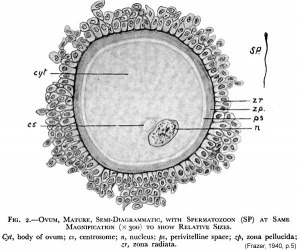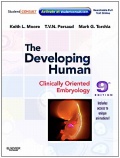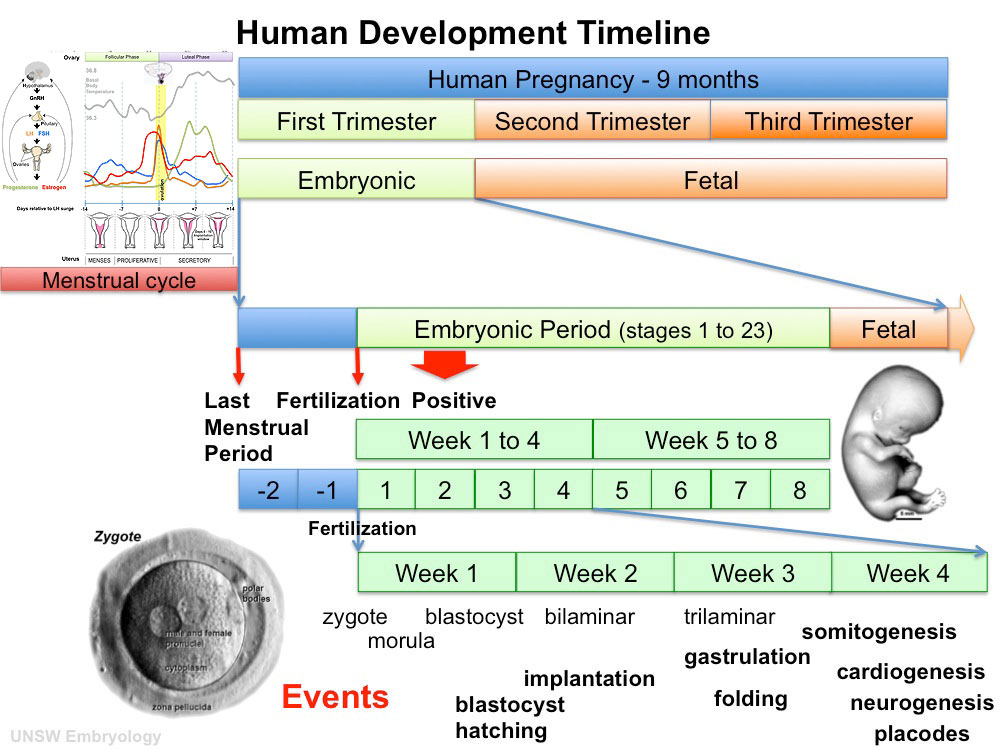ANAT2341 Lab 1 2013: Difference between revisions
No edit summary |
|||
| Line 1: | Line 1: | ||
=Human Fertilization and IVF= | =Human Fertilization and IVF= | ||
{{ANAT2341Lab1}} | {{ANAT2341Lab1}} | ||
Sir Robert Geoffrey Edwards, the ‘father of assisted reproduction technology’ (ART) was knighted in the 2011 Queen’s Birthday Honours for services to human reproductive biology. He has the great distinction of being the only Nobel Laureate in the field of ART, having been awarded the 2010 Nobel Prize for the development of in vitro fertilisation (IVF). Sadly, he died in 2013 but he will be remembered as an inspirational visionary in many fields of research. His landmark articles published in the 1960s in ‘Nature’ on the in vitro maturation of oocytes partly unveiled the origins of aneuploidy through non-disjunction of chromosomes. In addition, in collaboration with Robin Cole, he managed to generate embryonic stem cells from blastocysts. These remain areas of intense research some 50 years later! The research group that Bob built at Cambridge University provided evidence, through the sexing of rabbit embryos, that pre-implantation genetic diagnosis was feasible some 20 years prior to its clinical application. They also demonstrated IVF in the human 10 years prior to the birth of the world’s first IVF baby in 1978, the momentous culmination of Bob’s serendipitous collaboration with Patrick Steptoe. | |||
==Introduction== | ==Introduction== | ||
[[File:Frazer002_bw600.jpg|thumb|Historic drawing of oocyte and spermatozoa relative sizes]] | [[File:Frazer002_bw600.jpg|thumb|Historic drawing of oocyte and spermatozoa relative sizes]] | ||
| Line 12: | Line 15: | ||
# Discuss issues relating to human assisted conception and learn modern cutting-edge techniques in this field | # Discuss issues relating to human assisted conception and learn modern cutting-edge techniques in this field | ||
# Have an opportunity to ask questions concerning practicalities, problems, ethical concerns and any other issues related to human fertilization | # Have an opportunity to ask questions concerning practicalities, problems, ethical concerns and any other issues related to human fertilization | ||
# The learning objectives are as follows: | |||
Gametogenesis and the origins of aneuploidy; Oocyte maturation, sperm capacitation and fertilisation; Assisted fertilisation techniques and their eithical implications | |||
==References== | ==References== | ||
Revision as of 20:19, 3 August 2013
Human Fertilization and IVF
| ANAT2341 Lab 1: Introduction | Gametogenesis | Oogenesis | Spermatogenesis | Fertilization | Sex Determination | Online Assessment | ANAT2341 Lab 1 - Quiz |
Sir Robert Geoffrey Edwards, the ‘father of assisted reproduction technology’ (ART) was knighted in the 2011 Queen’s Birthday Honours for services to human reproductive biology. He has the great distinction of being the only Nobel Laureate in the field of ART, having been awarded the 2010 Nobel Prize for the development of in vitro fertilisation (IVF). Sadly, he died in 2013 but he will be remembered as an inspirational visionary in many fields of research. His landmark articles published in the 1960s in ‘Nature’ on the in vitro maturation of oocytes partly unveiled the origins of aneuploidy through non-disjunction of chromosomes. In addition, in collaboration with Robin Cole, he managed to generate embryonic stem cells from blastocysts. These remain areas of intense research some 50 years later! The research group that Bob built at Cambridge University provided evidence, through the sexing of rabbit embryos, that pre-implantation genetic diagnosis was feasible some 20 years prior to its clinical application. They also demonstrated IVF in the human 10 years prior to the birth of the world’s first IVF baby in 1978, the momentous culmination of Bob’s serendipitous collaboration with Patrick Steptoe.
Introduction
This first lab will be taken by Dr Steven Fleming
Dr Fleming is the Scientific Director of Assisted Conception Australia - Honorary Associate, University of Sydney - And the former Scientific Director of the In Vitro Fertilization Clinic in Westmead Hospital, Sydney
Objectives
- This tutorial/laboratory will focus on human gametogenesis and fertilization.
- Discuss issues relating to human assisted conception and learn modern cutting-edge techniques in this field
- Have an opportunity to ask questions concerning practicalities, problems, ethical concerns and any other issues related to human fertilization
- The learning objectives are as follows:
Gametogenesis and the origins of aneuploidy; Oocyte maturation, sperm capacitation and fertilisation; Assisted fertilisation techniques and their eithical implications
References
The Developing Human: Clinically Oriented Embryology
Larsen's human embryology
Developmental Biology

|
Citation: Developmental Biology, 6th ed., Gilbert, Scott F; Sunderland (MA): Sinauer Associates; 2000. ISBN-10: 0-87893-243-7
This more general development textbook edition is freely available online through NCBI Bookshelf.
UNSW Embryology
Fertilization Reviews
Human development timeline |




